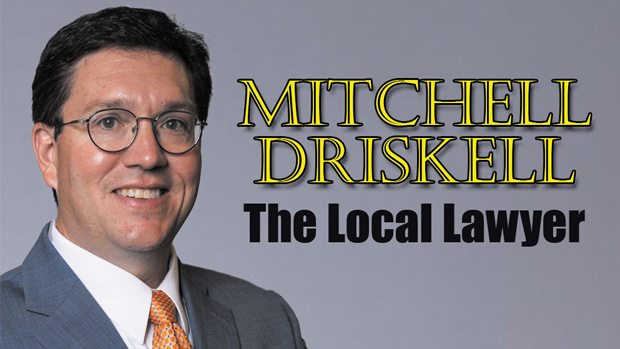
With the world understandably focused on Afghanistan, continuing Covid infections, and the beginning of football season (‘sko Rebs!), not much going on in legal current affairs. This column is a is a collection of shorter legal issues that might be of interest.
Court Recognizes “Friends with Benefits”
The first documented use of the term “friends with benefits” is in the 1995 Alanis Morrissette song “Head Over Feet.” Twenty-six years later, a Federal Court in New Jersey recognized “friends with benefits” as a relationship status having constitutional implications. The Fourth Amendment prohibits unreasonable searches and seizures and requires probable cause for a search, and probable cause is necessary to search your home and even your girl/boyfriend’s home. This case involved a guy found at his “friend-with-benefits’” house. As the police searched the friend’s home, without a warrant, they found the guy’s Gucci fanny pack containing 109 vials of heroin. The Court allowed the guy to challenge the search holding that a “friend with benefits” has an expectation of privacy at his friend’s house. The ruling suggests that the home of a casual sexual acquaintance carries legal protections, but, for now, only in one federal court in New Jersey. Isn’t that ironic, Alanis might say.
Your Boss Gave Me Covid
In 2020, the first year of Covid, most lawsuits alleging responsibility for infection were filed against nursing homes, cruise lines, and prisons—closed environments entirely controlled by a specific business or entity that could be blamed and where it was relatively easy to track the source of infection. There were not many cases filed in transient environments, like stores, restaurants, bars, or other businesses where customers and employees come and go. However, in 2021 there has been a new wave of lawsuits is attempting to blame employers when an employee’s family gets sick.
These lawsuits allege that a company was negligent, which resulted in an employee becoming infected with Covid and then passing Covid to a household member. A California court dismissed a lawsuit brought by the wife of a construction worker claiming that the construction company required her husband to work through the pandemic, did not follow infection control rules, and had a legal duty to keep the wife safe from getting infected by her husband. The court dismissed the suit holding that the company did not own any duty to protect an employee’s family from infection.
More recently, a Southwest Airlines flight attendant filed a wrongful death lawsuit against her employer in Maryland, alleging that her husband died after she passed Covid to him when she was infected at work where Covid precautions were ignored. Southwest has moved to dismiss the claim on the basis that it had no legal duty to protect the husband. These early cases are failing, but it will only take one case, one Court, to find a company responsible for an employee passing infection on to others, and then the flood gates may open wide.
Mississippi Passed Revenge Porn Law
In May 2021, Mississippi adopted a “revenge porn” law. The law makes it illegal to disclose or threaten to disclose any visual material depicting two people (the victim and another person) where the victim’s “intimate parts” are exposed or the victim is engaged in sexual conduct. Intimate parts are defined as “the naked genitals, pubic area, anus, buttocks, or female nipple of a person.” The threat of disclosure must also be made with the intent to harm and under circumstances where the victim expected that the visual material would remain private. A first offense is a misdemeanor punishable by up to six months in jail and $1,000 fine. A second offense is a felony punishable by up to a year imprisonment and $2,000 fine. So, beware, just because it is “your” video or photo on your phone does not mean you can share it.
Congress Failed to Extend Eviction Protection
Last week the Supreme Court struck down the Center for Disease Control’s rule preventing evictions for non-payment of rent. The Supreme Court held that the CDC did not have the constitutional authority to tell states that they could not enforce eviction laws. Weeks prior to this decision, the Supreme Court warned Congress that the CDC did not have this authority and said that Congress, and only Congress, could stop states from enforcing eviction laws. The Court told Congress that if the government wanted to continue to prevent evictions, it would have to come from a law passed by Congress, not a CDC order. Congress did nothing, did not even consider a bill on the issue, and the Court did exactly what it told Congress it would do—struck down the CDC eviction order. Congress then immediately blamed the Court for putting people at risk of losing their homes. Looks like Congress and the Court are not friends, with or without benefits. Justice Gorsuch should leave his Gucci fanny pack at home next time he goes to Capitol Hill.
Mitchell Driskell has been an Oxford lawyer for twenty-one years. He practices criminal law, family law, business transactions, and civil litigation. Email him mdriskell@danielcoker.com. Follow him on Instagram @mdriskell, twitter @MODIIItweets, TikTok @DriskellLaw, and on Facebook.

